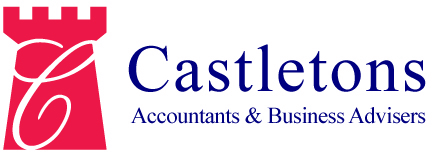Latest News
As the bushfires that devastated large swathes of the country continue on their destructive path leaving shatter communities in their wake, there are glimmers of hope with efforts to support and rebuild these communities starting to gather pace. In conjunction with these efforts, the ATO has announced automatic deferrals for lodgements and payments for taxpayers in impacted postcodes in the states of NSW, Victoria, Queensland and South Australia.
The ATO has recently withdrawn Draft Miscellaneous Taxation Ruling MT 2018/D1 on the time limit for claiming input tax credits and fuel tax credits. Generally, under s 93-5 of the GST Act, the right to claim an input tax credit expires after 4 years and commences on the day on which the entity was required to lodge a return for the tax period to which the input tax credit would be attributable. Section 47-5 of the Fuel Tax Act has a similar provision which limits claims to 4 years after the date which taxpayers were required to give the Commissioner a return.
While the Banking and Financial Services Royal Commission seems long ago in the minds of many, the people that have been financially affected by dubious practitioners will no doubt carry the scar of mistrust for life. This then, is precisely why the government has introduced new laws which will give ASIC new enforcement and supervision powers in relation to the financial services sector to weed out the “bad apples” and restore consumer confidence.
The ATO now has another "stick" in its arsenal to get businesses to engage with it and manage outstanding tax debts. Laws have recently been passed that allow the Tax Office to disclose tax debt information of businesses to registered credit reporting bureaus (CRBs). The aim of the laws, according to the government, is to encourage more informed decision making within the business community by making large overdue tax debts more visible, and reduce the unfair advantage obtained by businesses that do not pay their tax on time.
To combat the use of cash in black economy activities, the government has introduced a law which will implement an economy-wide cash payment limit of $10,000. If enacted, the law will make it a criminal offence for certain entities to make or accept cash payments of $10,000 or more. Understandably this limit has created some confusion about what transactions may be captured and what it applies to.
Do you run a side business in addition to your main employment? This could be in primary production (ie a farm or winery), retail or any other profession, trade, vocation or calling, provided it is not in a role of an employee. If you do, you may be subject to non-commercial loss rules, which are designed to restrict losses from "non-commercial" business activities from being offset against income from other sources, say your employment income.
As this year’s tax time comes to a close, the ATO has warned that it will scrutinise every individual tax return lodged to seek out incorrect claims. In particular, it will be on the lookout for under reported income as indicated by third party data, and deductions that appear high compared to people with a similar job and income level.
As the ongoing effects of the drought sweeps across the nation, the financial effects are no doubt weighing heavily on the minds of farmers and other primary producers. While the government cannot make it rain, it is doing its bit to ease the financial strain by giving those affected by drought more time to pay their taxes, waiving penalties and interest charges, adjusting PAYG instalments, and promoting tax incentives.
Have you considered the powerful tax and superannuation planning opportunities that the small business CGT concessions can offer your business? They allow you to reduce – or sometimes, completely eliminate – the capital gain from the sale of a business asset, whether it’s held directly by your business entity or in another related structure.
When you’re starting a new business venture, it may take some time before the business becomes profitable. Or, your business may simply operate at a loss in a particular year.
Do you sometimes take work trips for your business – perhaps to overseas conferences or interstate clients? When a trip is clearly for business purposes only, the rules for deducting your expenses are fairly straightforward.
Do you have any amounts of offshore income you haven’t declared to the ATO – perhaps interest from a foreign bank account? International data-sharing arrangements are making your overseas financial affairs increasingly transparent, so don’t get caught out.












